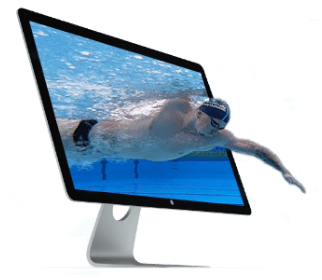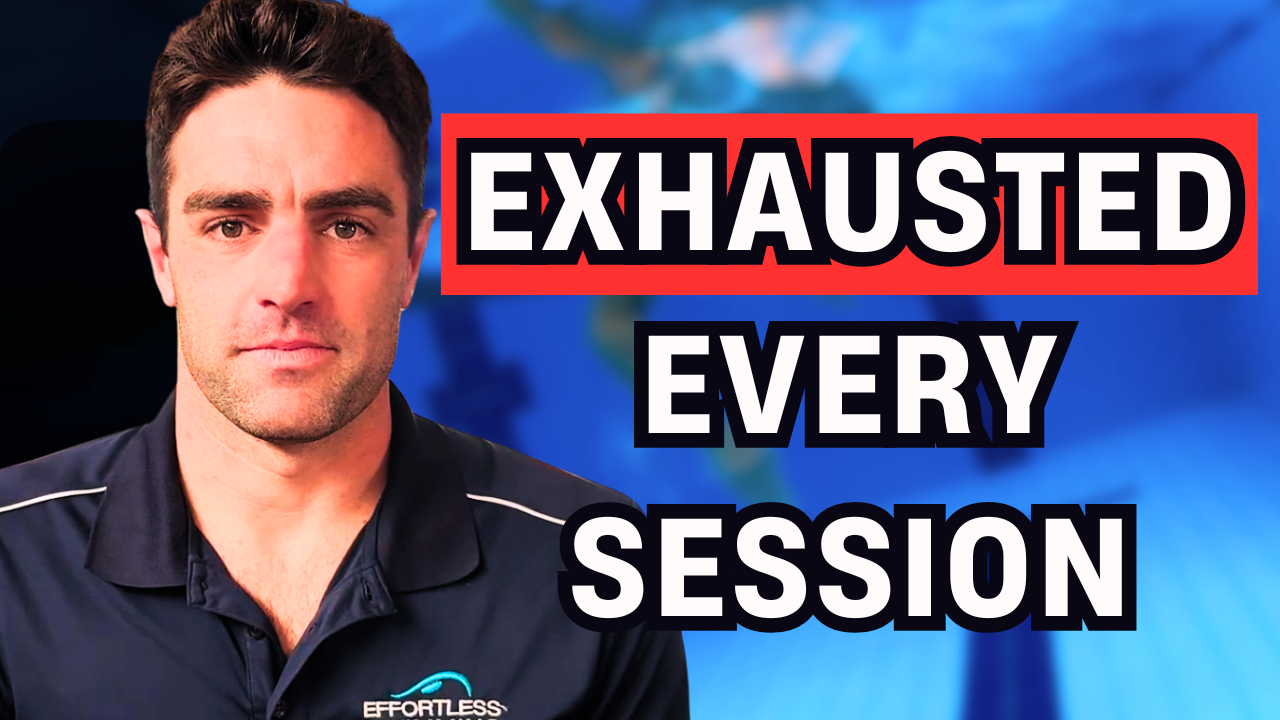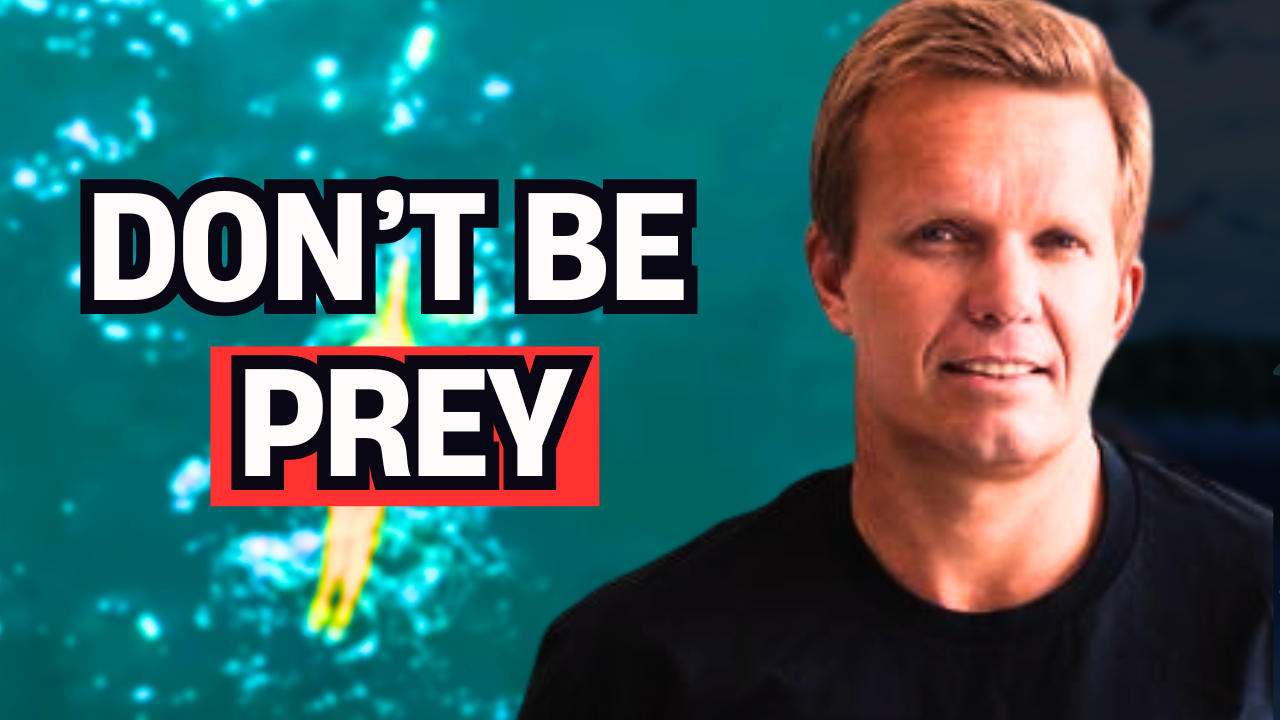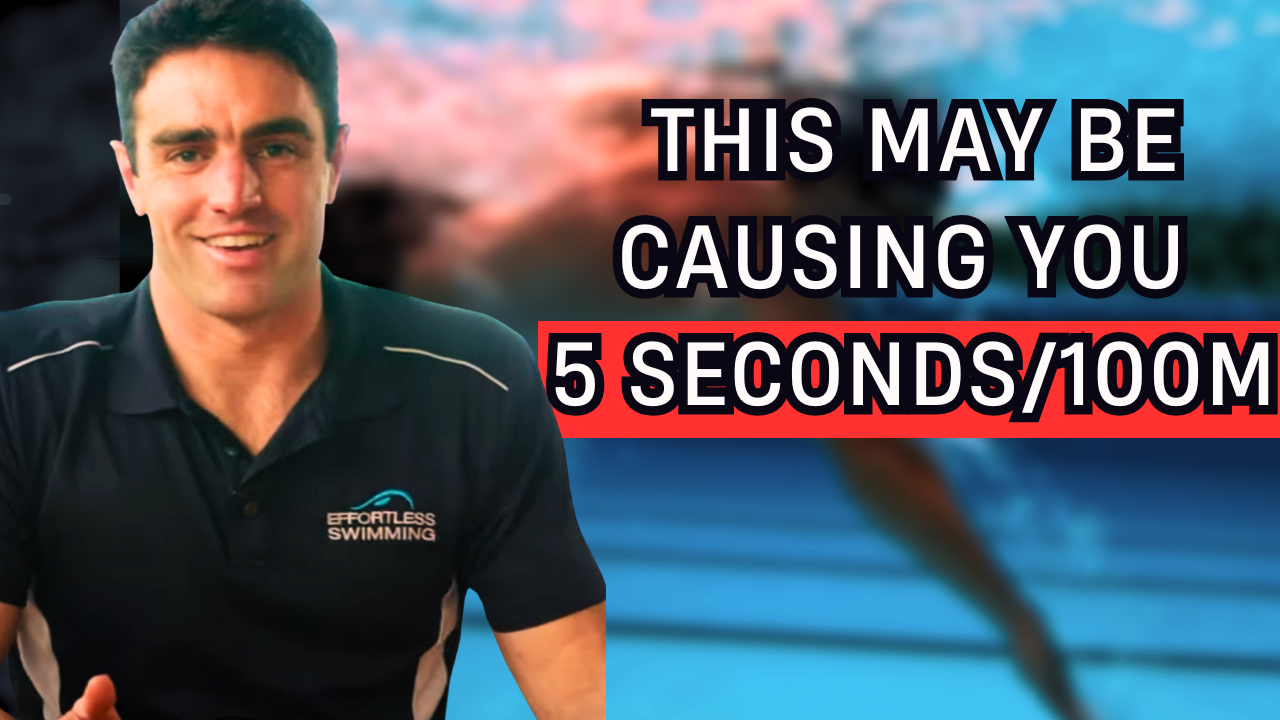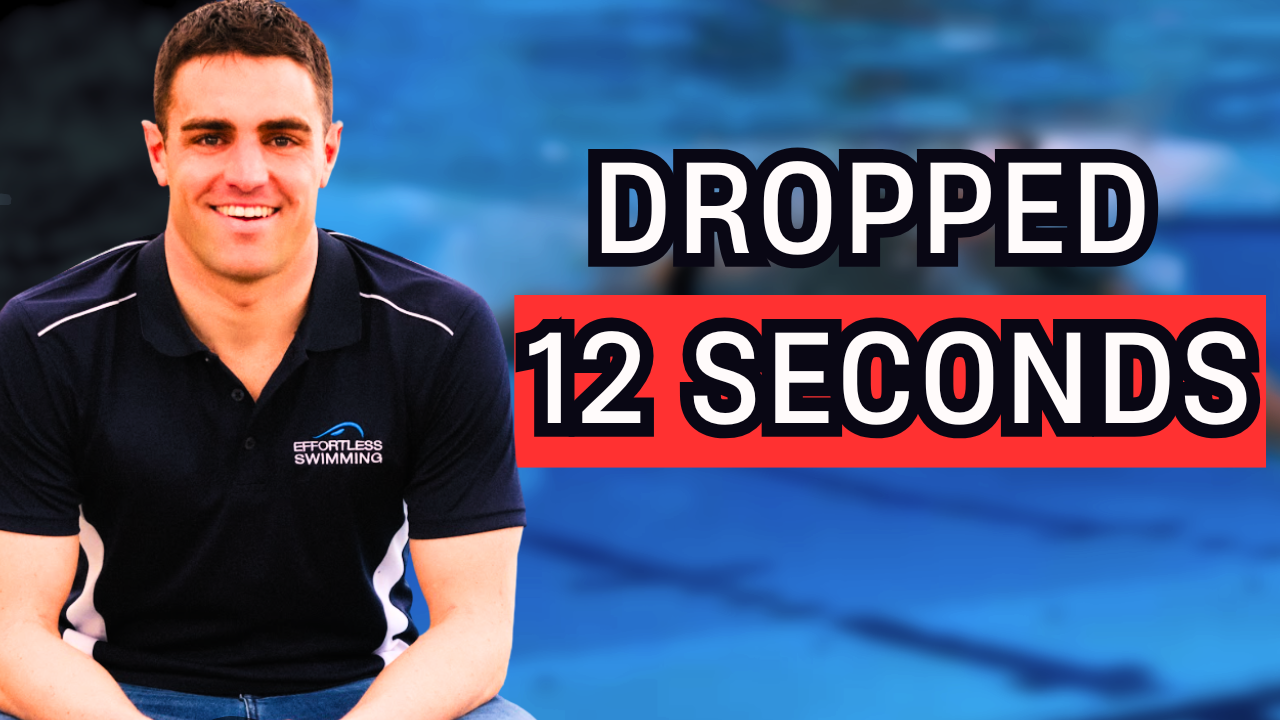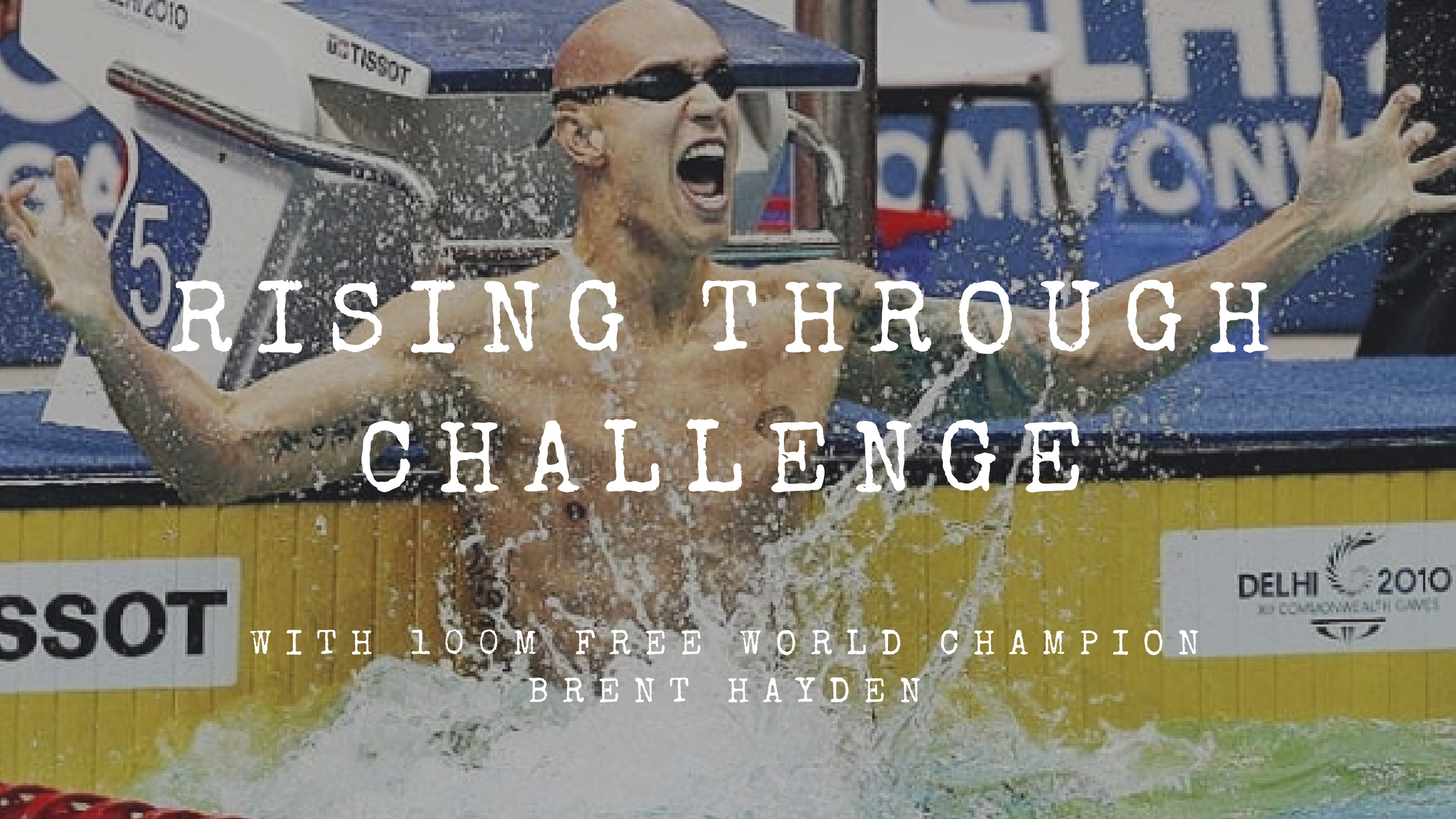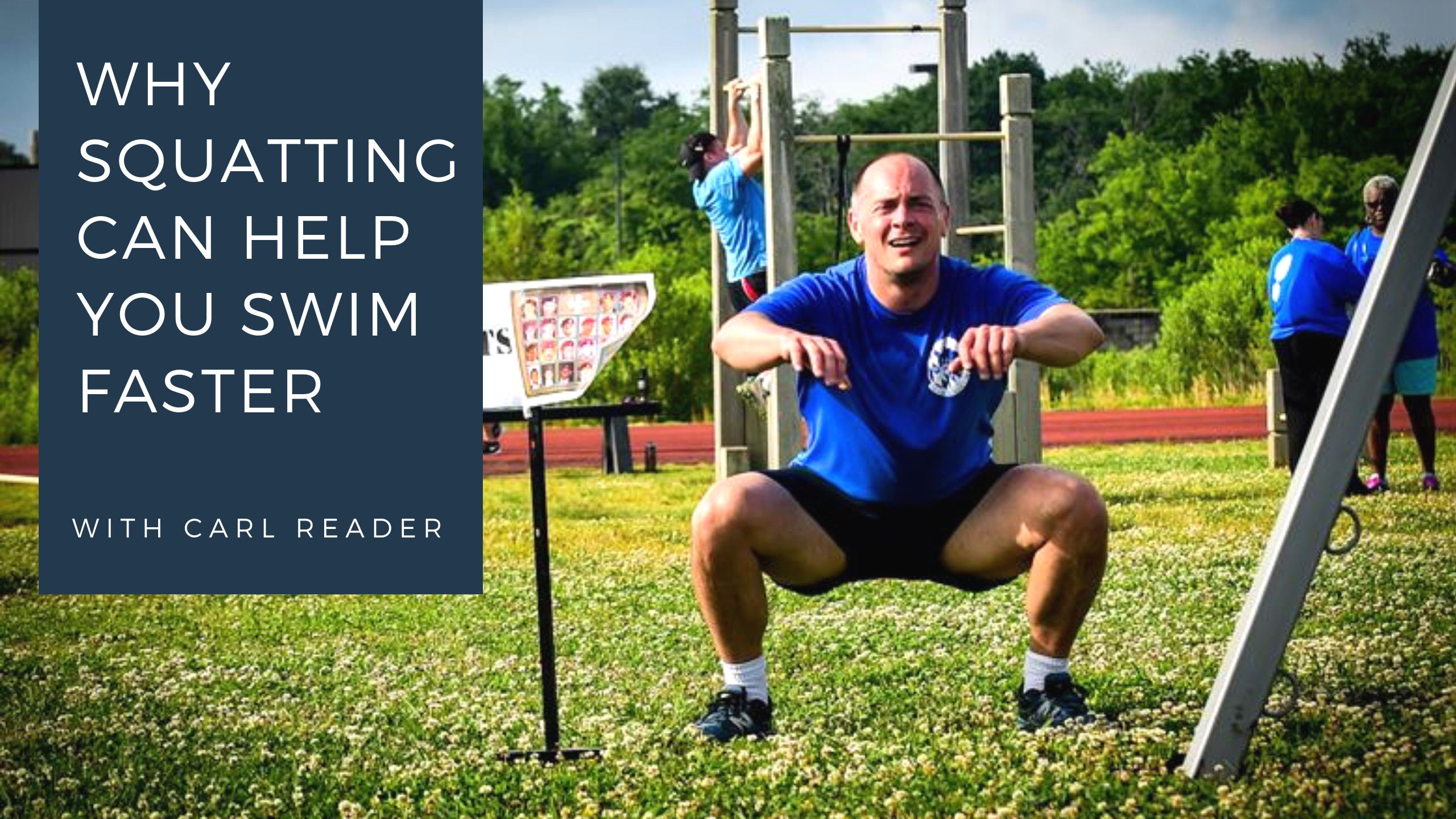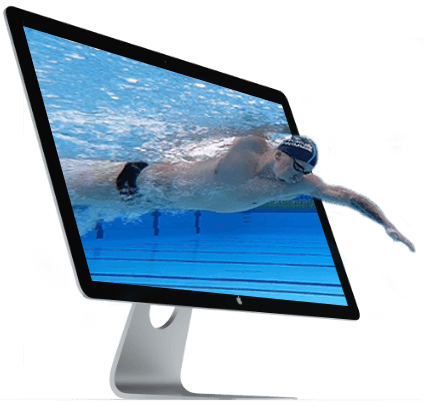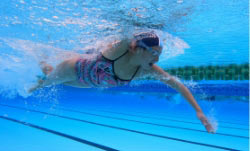Our guest today is Ben de Rivaz from Breca. Breca hosts swimrun events which take place on trail and open water; team races in pairs wearing wetsuit and trainers, transitioning between running and swimming stages. Join us as we discuss topics about the format swimrun compared to triathlon, why it is appealing to a lot of athletes, different courses and locations and a possibility of a National Championship.
00:19 About Ben de Rivaz
03:12 The SwimRun Format
05:36 The Appeal of SwimRun Sport
09:57 Ben’s Favorite Course
14:37 Looking For More Courses
14:51 National Championship
15:43 Organizing SwimRun Events
16:49 Responsibilities of an Organizer
To know more about Breca events, please visit:
https://www.brecaswimrun.com/
Transcript:
Intro: Welcome to the Effortless Swimming Podcast. The show that helps swimmers and triathletes who love the water, become a better swimmer and live a better life. Here is your host, Brenton Ford.
Brenton Ford: Welcome to the Effortless Swimming Podcast. My guest today is Ben de Rivaz from Breca. Ben welcome to the podcast.
Ben de Rivaz: Thanks for having me on.
Brenton Ford: So Ben, well I heard about you through a mutual friend, John Hancock who is very heavily into swim run events, and you run the Breca swimrun events which … a whole bunch of events in New Zealand and the UK, specifically swimrun events. For those people listening, can you give just a bit of background on I guess your background and then Breca itself?
Ben de Rivaz: So my background from a sporting perspective do you mean or?
Brenton Ford: Yes. So how did you come to run or to organize swimrun events and I guess some really well known swimrun events now? I’ve got a lot of athletes who come to our camps and come to our clinics and do our coaching, that are doing the Breca events on an annual basis now. So you’ve sort of got something really good going here. So how did all sort of come about?
Ben de Rivaz: Sure okay, thanks. Yeah, so my background. I live in London and I used to work in finance. I was working very, very long hours, completely desk bound at the beginning of my career and I needed some an out, and I found that out in endurance sport. And I just got really, really into events and sort of the classic thing of starting with some short distance runs, got into track long, then go into some quite extreme track longs, ultra running.
As time went by, just started trying to find more and more extreme events. And certainly the sort of things that I was looking for with these races … I think when you’re … I just wanted a complete getaway from this, immerse myself in these landscapes somewhere. Normally there was a bit of a trip involved. I’m going to have to get a flight or drove for a number of hours to get out somewhere as far away as possible to clear my head space.
Year and years and years went by doing these events, and finally I came across this event called the Otillo in Sweden. And the Otillo was the first of the swimrun race. And since 2012, myself and one of my racing buddies turned up to this event. We were awfully under prepared. We’ve never trained together. We had not prepared our kits, we hadn’t practiced with the kit. We just thought we’d turn up and had a go.
I did the event and I absolutely fell in love with the sport. It was the most fun I’ve ever had racing and it was sort of the confluence of all of the things that I look for in endurance sports. I think that’s really down to performance. So for the uninitiated swimrunners that’s … So basically it’s a swimming and running event. But perhaps what’s not so clear is that the format means you race as a pair, so you race in a team of two and you have to stick together at all time. Some people ask, can one person do the runs, can one person do the swims. Absolutely not. You are doing it side by side and supporting each other through this course.
The second thing is that there are multiple swims, multiple runs on these courses. So a course could have anywhere from four swims and five runs up to something like maybe 10 runswims and 12 runs. And because you are talking and changing, getting in and out of the water all the time, you actually can’t have a set of the clothes with the transitions that you might have with triathlon. So instead, the way the sport has evolved is that people just wear … they essentially the kit that they started with throughout the race, so you have to run in your wetsuit and you have to swim in your trainers. So that sounds like a lot when you first hear about it. The thought of running in a wetsuit just sounds horrendous. But actually I’d say the dirty little secret of swimrunning that it’s not so bad and actually the wetsuit manufacturers are going behind the sport in swimming to produce swimrun specific suits which make the whole task much easier than perhaps it sounds.
Brenton Ford: Yeah. I did an event about two years ago now with John as my partner, and I had no wetsuit. I cut it up, I cut the sleeves off and I hadn’t tried it, I hadn’t tested it on, and I got the worst chafe under my arm from the sleeve because there was a bit of wetsuit material that was catching every time that I run. And I think I’ve still got the scar today from that. So having the manufacturers that make swimrun specific wetsuit is as great thing just based on my own experience, because the event that I did with John was about … I had to do 10 kilometers of swimming and close to 40k of running in the end.
And it sounds like a lot of and I talk about that now, that it’s a long way. But it goes relatively quick when it’s broken up into so many different legs. It’s quite a different sport than anything that I’ve done before.
What do you think the appeal is of … Why is there so much momentum behind the sport at the moment? Where does that appeal lie for most people?
Ben de Rivaz: Sure yeah. I think a lot of the people here come into sport. You’ve got people who are coming into it with running backgrounds, some true running backgrounds. You’ve got a lot of triathletes coming into it and a lot of open water swimmers. I think you appear as multi tested. I think there’s a real sense of hemorrhage at the events. I’ve found that when you’re doing individual endurance sports, you tend to have your head down at the events and be very focused on your performance. And rightly so, your best race you thus do well.
The difference then with the swimrunners at your starting point is that you’re racing with someone else and you’re working at someone else’s race. And it just tends to lead to a more relaxed atmosphere at the events, almost like festival. Everyone talks to each other, there’s great comradery on the course, and then you have the aspects of … the elements of racing with your best swimrun buddy by your side which is just really, really cool. So that’s really unique.
I think the second thing is that the courses themselves, there’s a real draw to the locations that swimruns are going to take place, and especially the locations that we tend to look for.
This is something that’s particularly true for triathletes. It’s quite common if you look at a lot of triathlon courses. This is not to take anything away from triathloners, it’s just the way the school is structured. It’s quite common that you might have circular swim leg, followed by a bike that goes in a loop around wherever the swim transition point was and the assembly course for the run.
Conceptually I think that’s great racing, but conceptually to me that doesn’t my get my juices flowing. Whereas in a swimrun race, the places that we look for, we look for really wild locations, beautiful places to run. We look for place where we’re all far from social services, where we are away from manmade structures, where we can really put our athletes into something that’s really wild and extreme.
And then the courses themselves, if you look at our routes, they tend to be these point to point events that take you on this journey through the places that we’ve selected for our courses. And in our experience we find that even people who’ve lived locally to our events, sometimes find that they … they take these places they’ve never actually been to before, even when the race on their doorstep.
So I think that conceptually this course it’s a really exciting experience to race them. And I guess the third thing and this is probably of particular interest into your … for your listeners who have a swimming background is that the swimrun events often have a much … that the emphasis on swimming, on the swimming element I’d say is much higher than within triathlon.
I mean you can turn up to a 99 triathlon and you can be awful in the swim. If you are strong on the bike and strong on the run, it won’t make too much difference to your day. Obviously it’d be better to go quick in the swim but it’s not going to break or make your race. Whereas in swimrun, if you’re a strong swimmer, that is really going to impact your performance, you’re going to have a really, really good day.
So I think it’s just great that I tend to be strong at some swim than on the other … I tend to be strongest on the swimming stages, and it’s great to have a multi sport event where the swimmers are rewarded for their abilities.
Brenton Ford: Yeah. You certainly don’t get that in triathlon do you? Yeah, not even close, but with the swimrun event, with it being … Some of your events up to close to 10k of swimming, so you’ve really got to be strong on the swim. And I’m going to ask you a tough question now, and it’s like choosing your favorite child. But what’s your favorite course that Breca does?
Ben de Rivaz: That is really difficult. This is [inaudible 00:10:07] choice. That’s really tough. I mean I’m probably going to give you a politician’s answer.
Brenton Ford: I thought you might and I don’t blame you either.
Ben de Rivaz: Yeah. Actually, I’m going to answer that in a different way. I think that the core thing about these events is the course, but there’s no set distances that people are looking to achieve in the swimruns. So we didn’t go out and say, “Okay, you found this place we think will work and we’ve got this other three distance that we’ve got to fit a course from now.” We didn’t have to do that. Instead we can turn out some way and just say, “What is the coolest course that we can put together and what makes to this location.”
And what that leads to is really, really different courses on all the different locations that we work on. So take for example of our New Zealand. We’ve got two events in New Zealand, Breca Bay of Islands and Breca Wanaka.
Now Breca Wanaka has got 45 kilometers running, 8.5 kilometers of swimming. It’s close [inaudible 00:11:10] current from this. We do but it’s a surf island, mountains, lake, trails. That is clearly a course that rewards both strong swimmers, but there’s big emphasis on running. I mean 45 kilometers running is no joke when you’ve got all of that swimming still around it.
The other place, Breca Bay of Islands has got only 25 kilometers running but 8.5 kilometers of swimming. And then on the swim, sort of being leap bound, you’re actually in the sea which can get pretty wild. So that clearly is a course which features the strongest swimmers. And actually in the inaugural event that we had this year, we had a lot of really, really strong ocean swimmers from New Zealand and Australia coming to take part.
Yeah, I think that’s … The core thing is that you just get such a huge variety between the different courses, and I just think that’s one of the really exciting aspects of the sport.
Brenton Ford: Yeah, that’s really cool. And one thing that I like to do when I’m either running or swimming or riding is, like you look at the map and you go. And after you’ve done like a big run or swim or ride, and you look at the map and you see where you’ve gone, to me that’s really exciting. So that sort of sense of adventure.
I sort of look at a few different spots there. Like there’s the rip in Melbourne which is the entrance to the Port Vila Bay. And there’s a race that they run there and I did that last year. And just to sort of look at the map and go, “That’s really cool. I swam from that point to that point,” and sort of you know all about how much water flows through there and it’s quite a dangerous part of the ocean there. And to look at that and go, “I’ve swam that,” is a really rewarding thing to do.
And the same thing with the swimrun events. The one I did was down in the Mornington Peninsula. I don’t think they run it anymore, but again it was just quite a distance, and when you say that on the map it’s a really good thing to sort of have as of what you’ve accomplished.
So particularly like looking at the Bay of Islands course, that’s really exciting. It looks a little bit like the Otillo course in terms of there’s so many different islands and runs and swims in it, that I think that seems to be a big appeal for people and I can see why, which is really cool.
Do you participate in these events or you’re just busy running them on the day?
Ben de Rivaz: Man I wish I could. I’ve got a serious case of [inaudible 00:13:44] whenever we hold one of our events. I’m just sitting on the sidelines, looking at the glam, watching everyone charging around the course.
Now at the moment I’ve got to be the guy with the clipboard, helping put things together, but I’m hoping I can put my racing shoes back on one day, actually race alongside some of the guys who are doing the event. The only thing is that I really feel like if I do that, now the pressure is on, I’m really going to have to perform, and it’s going to be a top 10 or top five place, otherwise it’s not going to be good.
Brenton Ford: Yeah, that’s it. Is it six events that Breca runs now?
Ben de Rivaz: Yeah. We’ve got four events in the UK and two in New Zealand.
Brenton Ford: And are there plans for any more locations or it’s really just about making them as good as they can be and making sure they all run smoothly, or you are looking elsewhere as well for more courses?
Ben de Rivaz: We are always looking for more courses. So we’d love to hear recommendations from your listeners. Get up, jump onto the Breca swimrun website. Send us if you know an area that you think is going to be perfect for swimrun, jump onto the contact page and send us a message. Having said that so yeah, we are looking for more courses.
I think what we are also trying to do is put a system in place to a lot of people who race in our series to compete against each other. So we are going to be announcing this shortly, but that’s going this year, that’s going to consist … I said this year, in 2019. That’s going to be a national championship both in the UK and we’ll also have a southern hemisphere championship with our New Zealand events. So I think that’s going to be really cool.
Brenton Ford: Awesome. Yeah, that’s exciting. I’m definitely going to do one day, whether it’ll be next year or the year after. Yeah, whether it be New Zealand events. I’d love to do it because I can’t ride a bike to save myself, but I can swim and I can run. So yeah, that’s why swimrun appeals to me.
And yeah, I appreciate that you’ve been able to put these events together. Was it harder or what you expected, putting these stuff together when you first got into it? How challenging was it from I guess an organization perspective compared to what you thought going in?
Ben de Rivaz: If anyone had told me how hard it was to Brenton, I probably wouldn’t be talking to you today. It’s challenging. I mean that there’re challenging courses to race, and anything where you’re putting people into the water in all those different locations, it’s going to be really difficult to actually deliver your detail [inaudible 00:16:26] to people.
So there is a big piece involved in making sure that … We do want to take people to these peaceful, wild places but we also want to make sure that we are looking out for everyone. And so getting that a bit right is a lot of work, but you can weed that. It’s been such a cool journey going to where we are and we wouldn’t have done it any other way.
Brenton Ford: Yeah, I’ve probably found the same thing with [inaudible 00:16:53] as soon as we do it at Hawi Camp and Hawaii Camp as well. You want to be able to give people the best experience in the swim and that sense of adventure of fun and freedom, but you also have to do it within the, I guess the constraints of making sure that everyone’s fine at the end of it. So it’s that fine balance between the two, but it’s really well worth it.
We ran our Hawaii Camp this year for the first time in March, and we did the YKK Raforda course. So it’s [inaudible 00:17:27] so we just swam it as a group. And myself and the other coach we were out there on paddle boards, just making sure it runs fine. And it went really well but it still … You’ve got to be on your toes when you’re doing it, but it was just awesome being about 500, 600 meters out from the beach and it’s just this clear day, glassy water, and everyone just had a great time to swim, everyone made it. It’s really rewarding to be able to do that in the end. But as an organizer, in the back of my mind I’m thinking, I’m checking everyone, making sure they’re okay, looking out for boats and everything.
So you can’t relax as the organizer but you can really relax if you’re in there doing the events. And that’s what it I guess your responsibility as a coach or as an organizer, whereas everyone else gets to enjoy and you just have to make sure things are under plan.
Ben de Rivaz: Absolutely yeah. And we’ve had some pretty good success of our planning. Do you think in miles or kilometers? No, it’s miles, right?
Brenton Ford: Kilometers.
Ben de Rivaz: Kilometers. Okay. One of our events in Wales, it’s called Breca Gower. Gower is this area, Southwest Wales and it’s a pretty famous surfing spot, so it does … In the right conditions, it can get … Competitors, they can really go there. The night before the inaugural event, last year we had 115, 120 kilometers wins, so it’s sweeping through the area. I mean it comes down on the day but you can imagine the effect that that had on the swell on the currents and everything. It was really tough.
I think that’s all part of … That’s the cool thing about these races I think is that you can really find yourself tested in some really interesting conditions. And actually the guys who did best at that event, we have a number of GB triathletes and a number of really tough iron men racing there. And the guys who won were actually a couple of local surfers who were just happy as Larry in those conditions and they just knew exactly what lines to take and could read the sea really, really well.
I think its [inaudible 00:19:57] with some of the other competitors, but yeah.
Brenton Ford: That’s fantastic. Well what’s the next event that you’ve got coming up?
Ben de Rivaz: Our next event is … So we’re on the UK leg of our global series now. The next event that we’ve got is in a place called Breca Jersey. Jersey is an island in the Channel Islands. It’s probably [inaudible 00:20:22], so you [inaudible 00:20:23] and just swim around. It has the second biggest tidal range in the world, so 10 meter tides.
Brenton Ford: How many meters?
Ben de Rivaz: 10 meter.
Brenton Ford: Wow.
Ben de Rivaz: Yeah. The island doubles in size everyday.
Brenton Ford: Jeez. And how does that affect the … I guess they’re probably not in the water long enough for it to be too much of an impact but I guess it does. Yeah, it would really change some of the points during the race. How did you find that works for everyone?
Ben de Rivaz: Well what we found, so this will be the third year that we’ve run it. Okay, it’s an amazing location. Like it’s this beautiful, beautiful island and the channel, really warm waters, incredible trails go round the island, beautiful bays, and great swimming. It’s fantastic. But yeah, the tides are definitely a factor. And actually it doesn’t tend to affect the guys in the water too much. Clearly there’s a lot of water moving around, but we pick the location so that they’re not swimming against currents where they’re going to go anywhere.
Really the main impact is on the lengths of the different run and swim legs. Because you can imagine if you’re doing a 10 hour race where the winner has finished in six instead of [inaudible 00:21:39] mostly 10 hours. The guys at the back are going to have a very different race to the guys at the front, particularly at the back end of the course.
So yeah, there’s a big of organizational sort of [inaudible 00:21:50] just to make sure that we are on top of that. But yeah, they’ll just have two different races. The swim distance is different, the run distance is different. But again that’s all part of the excitement.
Brenton Ford: Yeah, that’s right. Well that’s very exciting. So I’m going to commit now to doing a Breca even in at least yeah, 2019 or 2020 over in New Zealand, and yeah, I’m really looking forward to it because I’ve heard great things from a number of different people and quite a few people who did it this year in New Zealand and who are doing it again next year, and they really enjoyed it. So I appreciate you being on the podcast and sharing how it all started for you, and I appreciate you putting together these sorts of events because I can imagine they are not easy to run an organize and a lot of would go into it, but well worth it for the people who attend. So I appreciate you being on the podcast.
Ben de Rivaz: Same thanks very much. It has been great, I’ve enjoyed it.
Outro: Thanks for listening to the Effortless Swimming Podcast. If you’d like us to help you become a faster, more efficient swimmer, go to effortlessswimming.com









